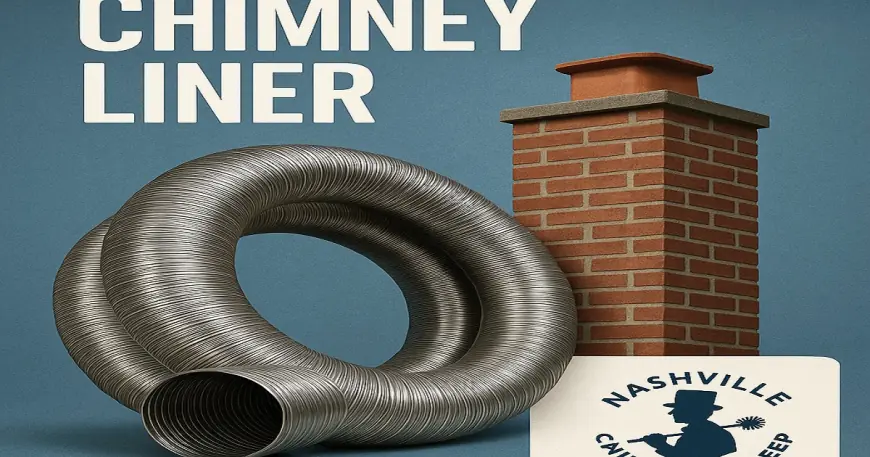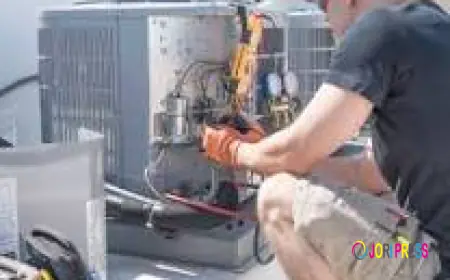Which Chimney Liner Material Works Best for Nashville Properties?
A chimney liner improves fireplace safety, prevents heat damage, blocks harmful gases, and keeps your home efficient and protected year-round.

When it comes to home safety and comfort in Nashville, few elements are as important as a properly lined chimney. Whether you own a newer build or a historic property, the type of liner inside your chimney can make a world of difference in performance, efficiency, and long-term durability. Choosing the right material could mean the difference between years of worry-free warmth and unexpected repairs. To guide you through this decision, we’ll explore which chimney liner material fits Nashville properties best.
Why It Matters
The unique climate in Middle Tennessee—with its humid summers, cool winters, and occasional heavy storms—puts chimneys under considerable stress. Selecting the ideal liner isn’t just about meeting building codes; it’s about protecting your investment and your family. The right liner can help prevent hazardous gas leaks, reduce the risk of chimney fires, and even improve heating efficiency throughout your home.
Common Problems
Homeowners in Nashville often run into issues like chimney deterioration, moisture intrusion, and creosote buildup. Older clay liners may crack over time, especially if the chimney experiences frequent freeze-thaw cycles. Metal liners, while durable, can corrode if exposed to acidic condensation from gas or oil appliances. And when a chimney is unlined or the liner is damaged, smoke and gases can seep into living spaces, creating serious health risks. Addressing these problems early is vital for both safety and peace of mind.
Key Benefits
Installing a modern liner brings a host of advantages. Stainless steel liners, for instance, offer excellent resistance to corrosion and are suitable for both wood-burning and gas appliances. Clay tile liners, while traditional, remain popular for their affordability and long lifespan, especially in older brick chimneys. Flexible metal liners are often chosen for relining chimneys that aren’t perfectly straight, allowing for a snug fit and improved venting. Each option enhances safety, contains heat, and helps keep moisture and dangerous gases where they belong.
The Role of Chimney Sweep
Regular maintenance by a professional chimney sweep is essential, no matter which liner material you choose. These experts use specialized tools to clear soot, debris, and creosote, helping your liner operate efficiently year-round. A sweep can also spot early signs of wear, such as small cracks or rust, and recommend repairs before minor issues escalate. Scheduling annual inspections and cleanings ensures that your chimney system continues to function safely and reliably, especially during Nashville’s chilly winter months.
Cost Breakdown
| Liner Material | Average Installation Cost | Expected Lifespan |
|---|---|---|
| Stainless Steel | $2,000 – $4,500 | 20+ years |
| Clay Tile | $1,200 – $2,500 | 30–50 years |
| Aluminum | $900 – $1,800 | 10–15 years |
| Cast-in-Place | $3,000 – $5,000 | 30–50 years |
FAQs
How often should I have my chimney liner inspected?
It’s best practice to schedule an inspection once a year, ideally before the heating season begins.
Can I install a new liner myself?
Professional installation is strongly recommended to ensure safety, proper fit, and compliance with local codes.
Which liner material is best for gas appliances?
Stainless steel liners are typically the top choice for gas-burning units due to their superior resistance to acidic byproducts.
Key Features
The leading chimney liner materials for Nashville homes each bring unique strengths. Stainless steel liners are known for their durability and versatility, working well in both old and new chimneys. Clay tiles offer a time-tested solution that stands up to high temperatures and resists damage from fire. Cast-in-place liners create a seamless, insulated barrier that’s ideal for restoring aging chimneys. Homeowners should look for liners that provide a tight seal, corrosion resistance, and compatibility with their fuel type.
Safety
Chimney liner safety goes beyond material strength. Proper installation ensures that smoke, heat, and carbon monoxide are efficiently directed outside, reducing the risk of fire or exposure. For Nashville’s variable weather, choosing a liner that resists moisture and thermal shock is vital. Always verify that the installer is certified and that the liner meets or exceeds local building standards.
Emergency Services
If you suspect damage or experience a chimney fire, call for emergency chimney services immediately. Quick action can prevent further structural damage and protect your home from hazardous fumes. Many Nashville companies offer rapid-response inspections and repairs, helping restore safety and peace of mind in urgent situations.
Conclusion
Deciding on the best chimney liner material for your Nashville property depends on your home’s age, fuel source, and personal priorities. Stainless steel leads for versatility and longevity, while clay tile liners remain a solid, cost-effective choice for traditional setups. No matter which option you select, regular maintenance and professional installation are the keys to safe, efficient performance. Make your selection carefully, and your chimney will serve you well for many seasons to come.
Read more: Nashville Chimney Sweep
What's Your Reaction?
 Like
0
Like
0
 Dislike
0
Dislike
0
 Love
0
Love
0
 Funny
0
Funny
0
 Angry
0
Angry
0
 Sad
0
Sad
0
 Wow
0
Wow
0
















































